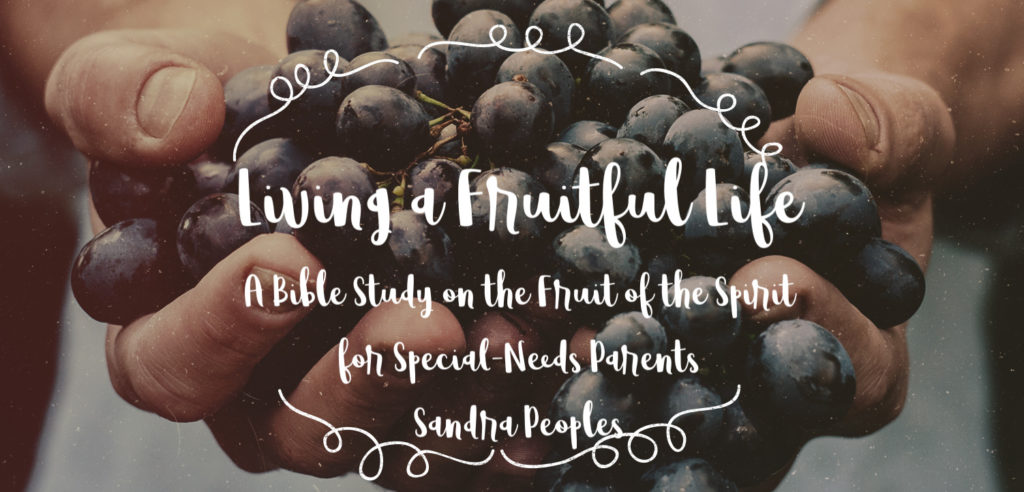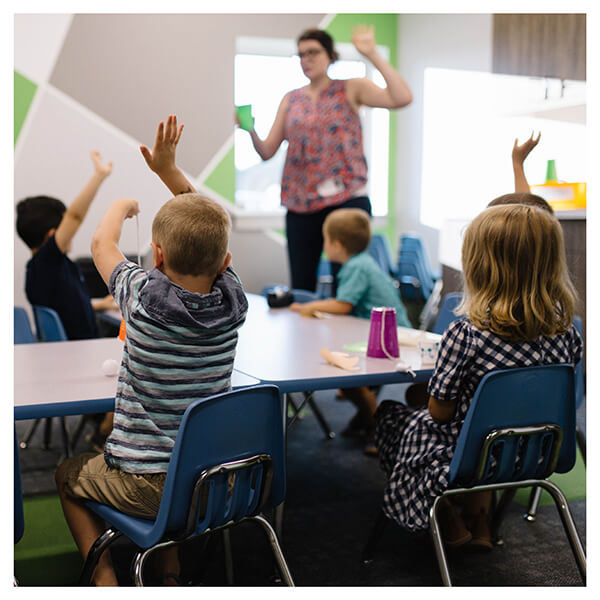On Monday I’m releasing Living a Fruitful Life: A Study on the Fruit of the Spirit for Special-Needs Parents.
But today, you can read an excerpt from the first chapter on love.
Love
“So now faith, hope, and love abide, these three; but the greatest of these is love.” 1 Corinthians 13:13

In the musical Fiddler on the Roof, Golde and Tevye’s daughters are growing up and falling in love, a very different experience than the tradition of arranged marriage Golde and Tevye know. As they talk about how times have changed, Teyve asks Golde if she loves him.
She responds,
For twenty-five years I’ve washed your clothes
Cooked your meals, cleaned your house
Given you children, milked the cow
After twenty-five years, why talk about love right now?
By the end of the song they finally sing,
Then you love me? (Tevye)
I suppose I do (Golde)
And I suppose I love you too (Tevye)
It doesn’t change a thing
But even so
After twenty-five years
It’s nice to know (together)
But love does change things. We know because God’s love changed things for us, and that love shows us how to love each other. As 1 John 4:9 says, “We love because he first loved us.”
In his list of the fruit of the Spirit, Paul started with the foundation of every other trait we can exhibit—love. Let’s look at how God loved us and we can love others.
How would you define love? Has that definition changed for you over the years?
Love Came Down
The entire Old Testament is a love letter from God to His people. He told them why their relationship was broken (sin), and how they could have a relationship with Him again (by following the law and the sacrificial system). But as Job cried out in his suffering, “There is no arbiter between us, who might lay his hand on us both” (Job 9:33). That’s why we needed a Savior, God who would take on flesh and defeat what separated us from God—sin and death.
The patriarchs and the prophets of the Old Testament longed for the good news that would come to a young woman in Nazareth after centuries of silence from God:
And the angel said to her, “Do not be afraid, Mary, for you have found favor with God. And behold, you will conceive in your womb and bear a son, and you shall call his name Jesus. He will be great and will be called the Son of the Most High. And the Lord God will give to him the throne of his father David, and he will reign over the house of Jacob forever, and of his kingdom there will be no end.”
And Mary said to the angel, “How will this be, since I am a virgin?”
And the angel answered her, “The Holy Spirit will come upon you, and the power of the Most High will overshadow you; therefore the child to be born will be called holy—the Son of God…For nothing will be impossible with God.” And Mary said, “Behold, I am the servant of the Lord; let it be to me according to your word.” And the angel departed from her.(Luke 1:30-38)
As you may sing each December, “Love came down at Christmastime.” God’s love for us—all of humanity—came through the womb of Mary and into the manger in Bethlehem. But it didn’t stop there. Jesus lived a perfect, sinless life while facing every temptation we face. And then He experienced a torturous death on a cross, becoming the sacrificial lamb those in the Old Testament had relied on to give payment for their sins. But death could not stop His love. He rose from the dead, conquering sin forever and restoring our relationship with God. Those of us who have accepted the free gift of salvation and repented of our sins, turning from them to follow Christ, are now children of God Himself.
Has there been a time in your life when you put your faith in what Christ did for you? If so, praise Him for the people He used to draw you to Himself. If not, this could be the day of your salvation! Email me at sandra@sandrapeoples.com to learn more about salvation and respond to God’s call on your life.
Mary’s Example of Love
Jesus’s example of love set the foundation for us all. And the person who saw that example first-hand, whose love for Christ we can learn to emulate, was His mother Mary. It wasn’t always easy to love her calling as the mother of Christ. She was even told early on how difficult it would be:
And when the time came for their purification according to the Law of Moses, they brought him up to Jerusalem to present him to the Lord… Now there was a man in Jerusalem, whose name was Simeon, and this man was righteous and devout, waiting for the consolation of Israel, and the Holy Spirit was upon him. And it had been revealed to him by the Holy Spirit that he would not see death before he had seen the Lord’s Christ… And his father and his mother marveled at what was said about him. And Simeon blessed them and said to Mary his mother, “Behold, this child is appointed for the fall and rising of many in Israel, and for a sign that is opposed (and a sword will pierce through your own soul also), so that thoughts from many hearts may be revealed.” Luke 2:22, 25-26, 34-35
Simeon said a sword would pierce through her own soul also. Her journey of learning to love even when it was hard was just beginning.
When you heard your child’s diagnosis, were you told he or she might be hard to love? Days after my sister was born with Down syndrome and an intestinal blockage, a doctor offered to withhold surgery and let her die. The message was she would be hard to love. Too hard actually, and my parents didn’t deserve to have to be burdened with her care. But my parents remembered 1 John 4:9, “We love because he first loved us,” and started on the journey to love her with the love God lavished on them.
Mary was a follower of Jesus during His years of ministry. She was there for His first miracle (John chapter 2). She was also there at the cross, when most of His disciples had fled (John 19). Loving Jesus meant being there not just when He was popular, but also when He was suffering. We can relate to these times in Mary’s life, can’t we?
There are times when it seems everyone wants to be around our kids—like in the news clips we see of teens with disabilities winning homecoming king or being an honorary cheerleader. They are in the center of the crowd, being cheered and celebrated. There are other times we as their parents are the only ones around—during a meltdown at the grocery store or when we can’t find an appropriate place to meet their toileting needs. It isn’t as easy to find support in those times. But Mary’s example of love encourages me. No matter who else recognizes it, I see still the value in my child and know God has a purpose for him. And that means I keep showing up, loving him as I have been loved by God.
Can you relate to Mary’s life of love for Jesus? To showing up when others don’t? To trusting in God’s plan even when it isn’t clear to everyone else?
This excerpt from the first chapter shows how the Bible study is designed specifically for parents of children with disabilities. If you’d like to join me for this study, sign up to become a Patreon supporter starting at just $5 a month. You’ll get a PDF of the Bible study and be able to participate in our weekly discussions.



